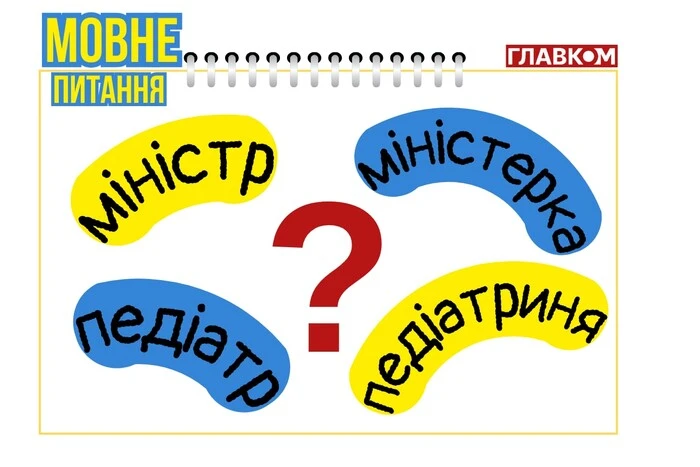Why is there a female minister, but a pediatrician is called pediatricianess? Linguist explains the patterns of forming feminine nouns.


Philologist Olga Vasilyeva explained how feminine nouns are formed and when to use a specific suffix. Many people are confused by the different methods of formation: from 'minister' we get 'ministeress', while from 'pediatrician' or 'psychiatrist' we have 'pediatricianess' and 'psychiatristess'
«The linguist and author of 'Women’s Names Dictionary' Olena Synchak, based on the analysis of 2000 words, drew conclusions about the formation of feminine nouns, which can be found in the preface to her dictionary. It is explained there that we can also add the suffix -k(a) to stems with the same consonants: referee – referee-ess, pediatrician – pediatrician-ess, minister – ministeress», – explains Olga Vasilyeva.
She explains that in the second case, -e is added before 'r', and the stress remains on the same syllable as in the masculine form. And although 'ministeress' might be suitable, 'pediatrician-ess' is not.
«If you go to medical blogs on Instagram, you will see that all specialists in pediatrics and psychiatry write 'pediatricianette' and 'psychiatristette'. And this breaks the rules. It's all because feminine nouns are still evolving, and everything will depend on Time», – notes Olena Synchak.
She adds that currently there are three options for feminine nouns from 'linguist' ('linguistess', 'linguistka', 'linguistess') and two options from 'military personnel' ('military personneless', 'military personnelka'). In both cases, -ic(y) wins, and when it comes to 'pediatrician' – it's -in(y), not -k(a). 'Ministeress' has become so widespread due to frequent usage. That's why we use it.
Earlier, Olga Vasilyeva revealed and clarified whether the word 'breasts' has a singular form and which word is better to use for denoting one of the breasts. She states: «The obvious problem of inconvenience and non-functionality in using the word 'breasts'».
She also explained when to write 'birthday' with a capital letter and when it can be written in lowercase. She notes that capital letters can be used for the birthdays of prominent people, for example: the Birthday of Simone de Beauvoir, celebrated by feminists, or the Birthday of Louis Braille, which is important for visually impaired people. However, she adds: «The birthday of your beloved or close person is not a historical holiday».
The philologist also explained how to greet correctly: «Good morning!» or «Good morning!». She considers it wrong to state the incorrectness of «Good morning!» while affirming the correctness of «Good day!» and «Good evening!».
Read also
- Inheritance in Ukraine: what relatives will not be able to receive
- Through the war in Ukraine, sparrows, swallows, and rare wetland birds are disappearing: an ornithologist's explanation
- Oles Doniy spoke about the loss that struck his family
- CPD: Message about the failure at the South Ukrainian Nuclear Power Plant - a Russian fake
- Vinnytsia Regional TCC Suspends Operations: Reason
- The Ministry of Defense has launched a weapons marketplace









